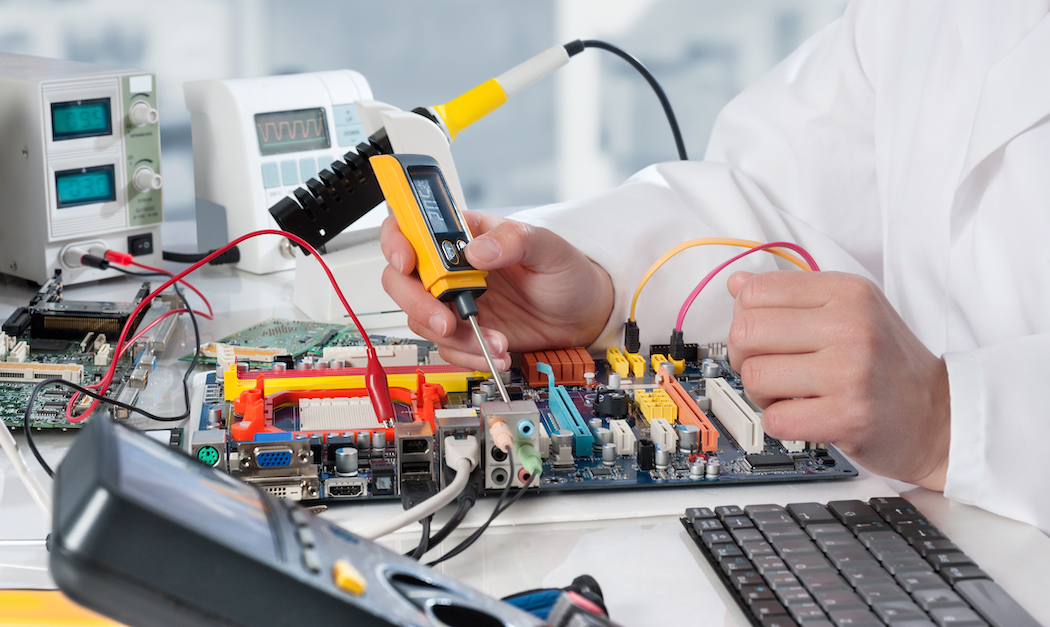
Electrical and Electronics Engineering (PGD/M.Eng./M.Phil./ Ph.D.)
About the Program
Electrical and Electronics engineers are involved in channelling natural resources into various end-uses such as in heating, lighting, home appliances, consumer products, computing, sensing, control, and communication systems.
Electrical and Electronics engineers contribute to the development of systems and devices for power, instrumentation, measurement, communication engineering, management, manufacturing, transportation, etc.
Electrical and Electronics engineers are primarily concerned with the processes of generation, transmission, transformation, control, and utilization of energy and/or information.
AUN’s curriculum exposes you to the breadth of electrical and electronics engineering and allows them to pursue electives in several areas including electrical circuits, electronics, electrical power systems, communication systems, signal processing, control systems, electromagnetics, optics and optical devices, and computer engineering. You will take courses in the following areas:
-
Electrical circuits and electronics provide study of basic electrical devices – energy sources, resistors, inductors, capacitors, diodes, and transistors – and their interconnection in operational networks. Circuit analysis and design techniques cover both analogue and digital applications;
-
Power systems emphasize the design and applications of motors, generators, transformers, distribution systems, high-voltage devices, and power electronics;
-
Control systems emphasize the design and application of circuits and systems to automatically monitor and regulate operation of devices, machines, and processes. Advanced technologies using digital control, intelligent processing, neural networks, and programmable logic controllers are included;
-
Communication systems and signal processing cover concepts required for the characterization and manipulation of information-bearing signals, modulation systems, wireless networks, image processing, and signal detection software and hardware. These courses provide instructions in the interaction, propagation, and transmission of high frequency waves and signals through space and in conductors. Topics include grounding and shielding, antennas, microwaves, and systems; and optics and optical devices provide a study of solid-state materials, electronic devices, and optoelectronics. Applications are in micro-fabrication, telecommunications, computing, instrumentation, lasers and fibre optics, sensing, and smart technologies.
- Postgraduate Diploma (PGD) in Electrical & Electronics Engineering
- Master of Engineering (M. Eng.) in Electrical & Electronics Engineering
- Master of Philosophy (M. Phil.) in Electrical & Electronics Engineering
- Doctor of Philosophy (Ph.D.) in Electrical & Electronics Engineering
M. Eng. and Ph.D. graduate degree programs in Electrical & Electronics Engineering and related disciplines include:
- Electrical Engineering
- Electronics Engineering
- Electrical & Electronics Engineering
- Power Systems
- Electrical Machines
- High Voltage
- Control & Instrumentation
Visit our admissions page for full application details.
Call: +234 0805 226 6398
graduate.admissions@aun.edu.ng

